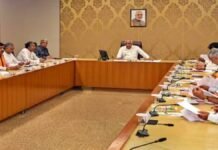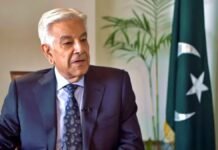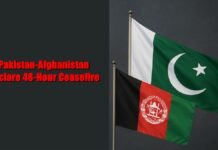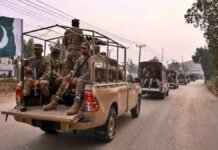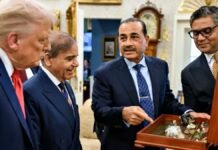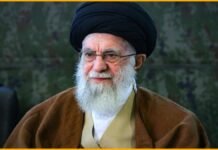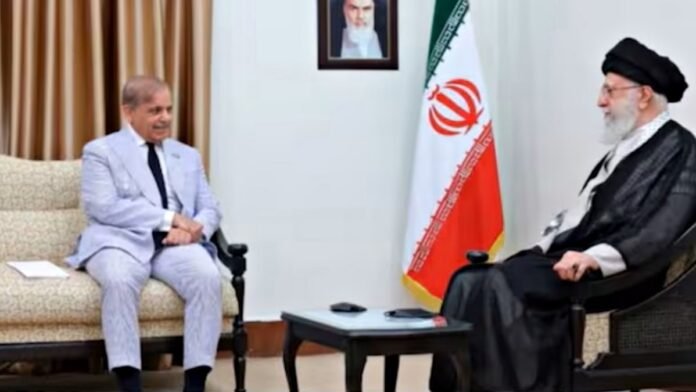
Key Points
- Pakistan and Iran are strengthening ties after last year’s cross-border airstrikes, united by shared concerns over the Gaza crisis.
- High-level meetings in Tehran saw Pakistan’s PM Shehbaz Sharif and Army Chief Asim Munir engaging with Iran’s top leadership.
- Both countries voiced strong support for Palestine and condemned normalization with Israel.
- Pakistan raised the Kashmir issue, but Iran maintained a balanced, diplomatic stance, calling for peaceful resolution between India and Pakistan.
- Iran praised Pakistan’s refusal to normalize ties with Israel and called the Palestinian cause the top priority for the Islamic world.
Tehran: Just a year after exchanging cross-border airstrikes, Pakistan and Iran are now showcasing a remarkable thaw in relations, propelled by their united stance on the escalating crisis in Gaza. In a significant diplomatic development, Pakistan’s Prime Minister Shehbaz Sharif and Army Chief Field Marshal Asim Munir visited Tehran for high-level talks with Iran’s Supreme Leader Ayatollah Seyyed Ali Khamenei and President Masoud Pezeshkian.
From Tensions to Cooperation: Gaza as a Unifying Force
The October 2023 Israel-Hamas conflict and subsequent Israeli counterstrikes in Gaza have become a powerful catalyst for improved ties between Islamabad and Tehran. During the meetings, Ayatollah Khamenei publicly praised Pakistan for resisting international pressure to normalize relations with Israel, calling this restraint a “principled stance against a blatant betrayal of the Palestinian cause.” He criticized some Islamic governments for aligning with Israel and reaffirmed that the Palestinian issue remains the “foremost concern of the Islamic world.”
Prime Minister Shehbaz Sharif echoed these sentiments, urging the global community to push for a “lasting ceasefire in Palestine” and pledging Pakistan’s ongoing solidarity with Iran in efforts to promote regional peace and prosperity.
Pakistan Raises Kashmir, Iran Urges Peaceful Dialogue
Taking advantage of the diplomatic momentum, Shehbaz Sharif raised the issue of Kashmir and ongoing tensions with India, referencing recent Indian airstrikes in Pakistan and Pakistan-Occupied Kashmir after the Pahalgam terror attack. Sharif thanked Iran for its supportive role during those tense times.
At a joint press conference with Iranian President Masoud Pezeshkian, Sharif extended an olive branch to India, expressing Pakistan’s willingness to engage in dialogue to resolve longstanding disputes, including Kashmir, water-sharing, and trade. “We are ready to talk, for the sake of peace… We want peace and we will work for peace in the region through talks,” he stated, while clarifying that Pakistan’s willingness depends on India’s reciprocal acceptance.
Ayatollah Khamenei, however, maintained a balanced approach, expressing hope for the resolution of India-Pakistan disputes: “We are delighted with the end of conflicts between Pakistan and India and hope that the differences between the two countries will be resolved.”
Regional Implications: New Dynamics in South Asia
This diplomatic outreach signals a new phase in Pakistan-Iran relations, with both countries leveraging their shared stance on Palestine to foster broader regional cooperation. The meetings also highlight Iran’s careful diplomatic balancing act—supporting Pakistan’s positions while refraining from taking sides in the India-Pakistan conflict.
As the Gaza crisis continues to reshape alliances in the Islamic world, the warming ties between Islamabad and Tehran could have far-reaching implications for South Asian geopolitics, especially as both nations seek to position themselves as champions of the Palestinian cause while advocating for peaceful solutions to regional disputes.
The Gaza conflict has served as a catalyst for a significant rapprochement between Pakistan and Iran. High-level meetings in Tehran have seen both nations reaffirm their solidarity over Palestine, while also addressing sensitive regional issues like Kashmir. With Iran advocating dialogue and peace, and Pakistan signaling readiness for talks with India, a new chapter in regional diplomacy may be unfolding.


















